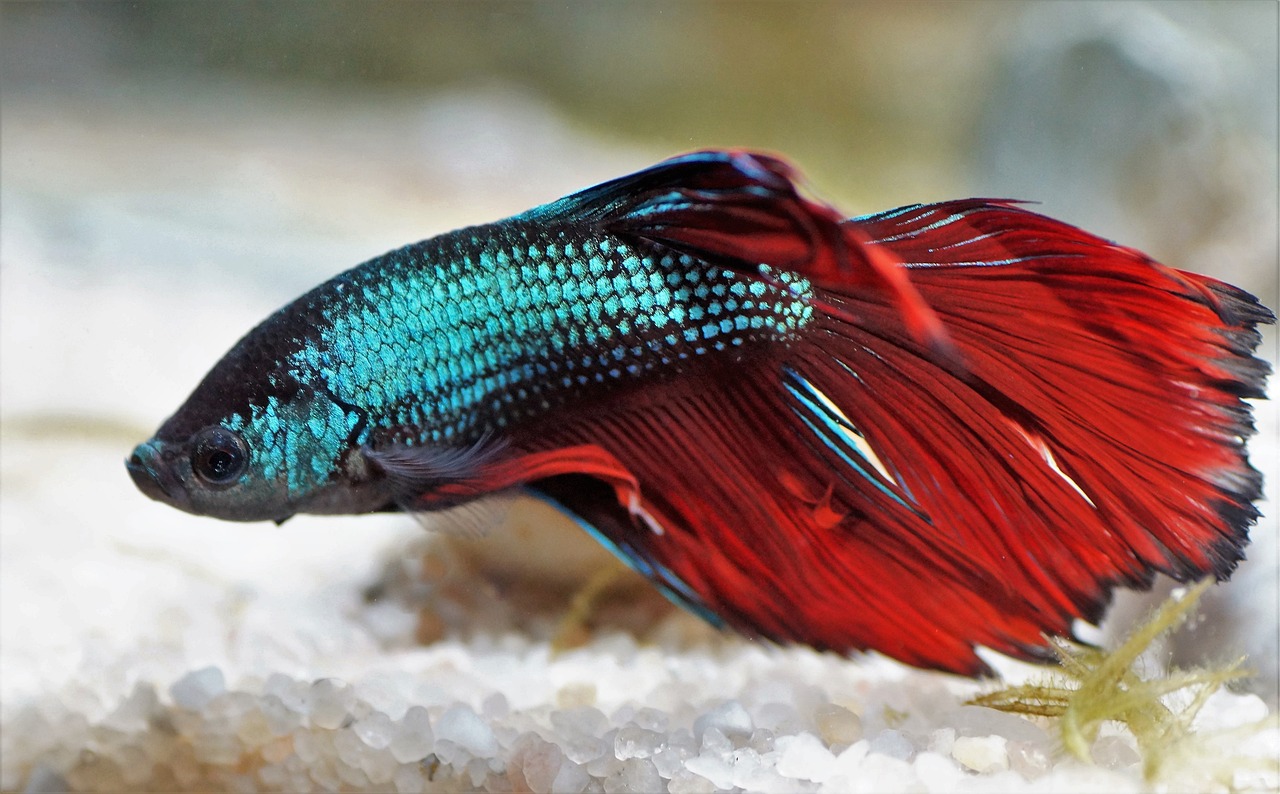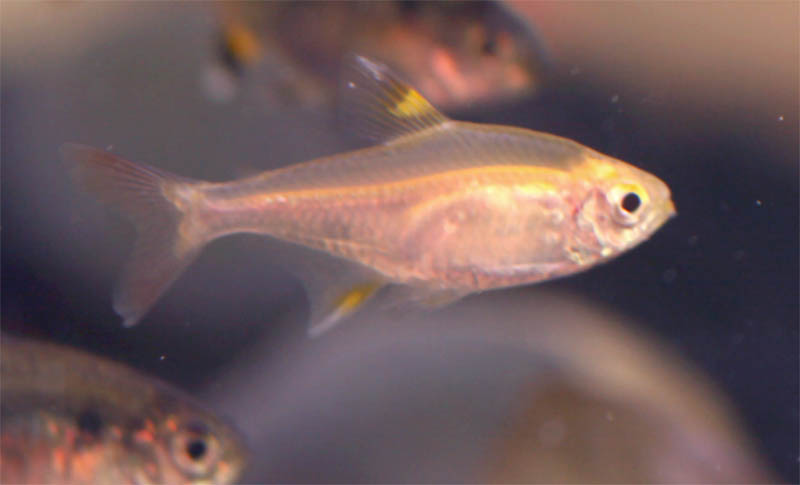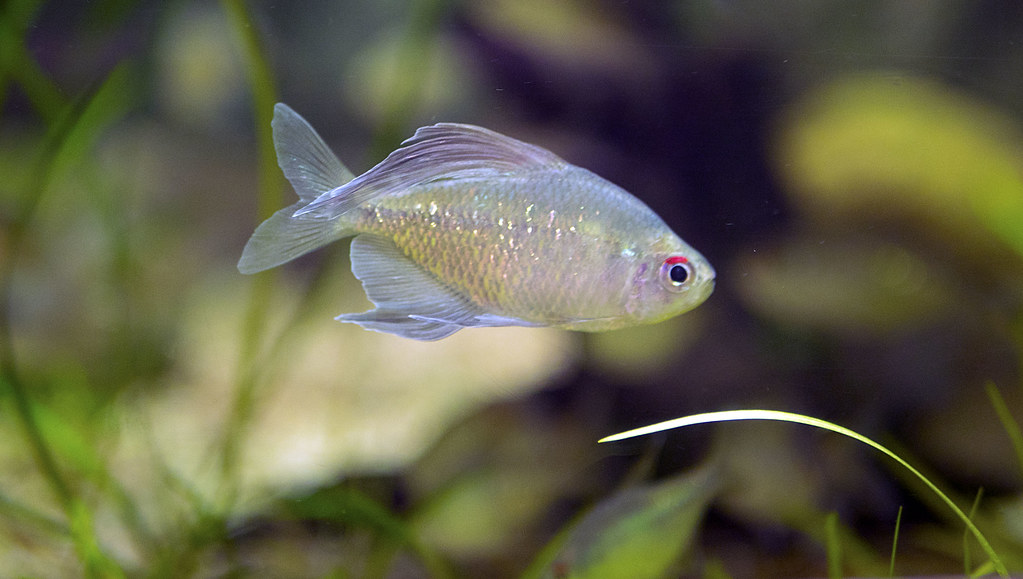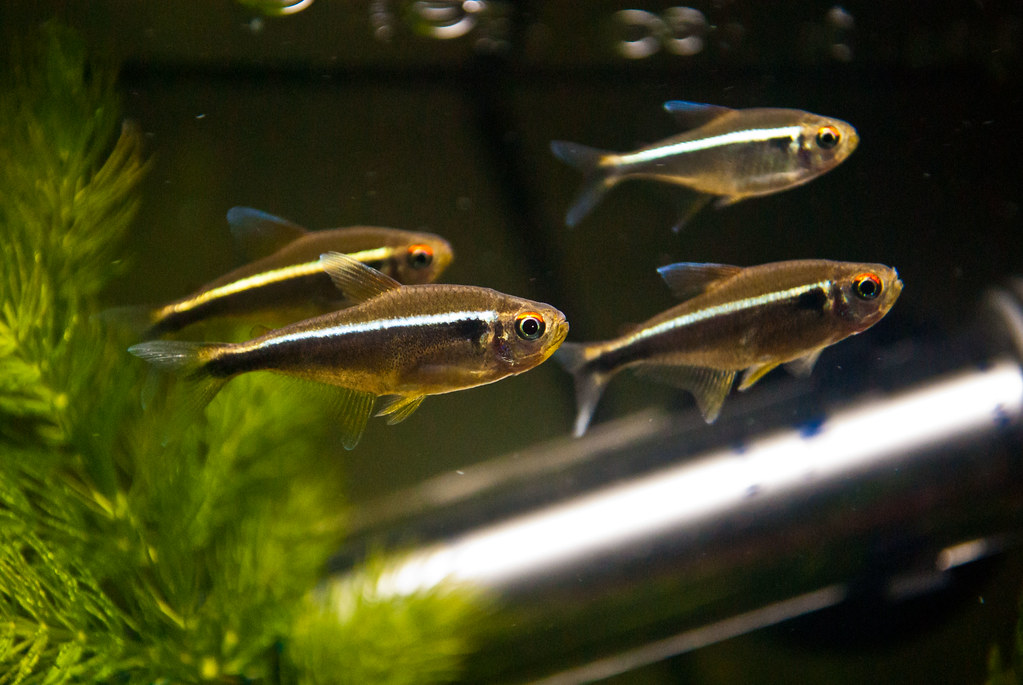Yes, betta fish can play dead as a way to conserve energy or seek attention.

Credit: www.barkandwhiskers.com
Table of Contents
Understanding Betta Fish Behavior
Betta fish can exhibit a behavior where they appear to be playing dead, but it is actually a form of sleeping or relaxation. This is a common behavior among bettas and is nothing to be concerned about.
Bettas As Pets: A Brief
- Bettas, also known as Siamese fighting fish, are popular pets known for their vibrant colors and flowing fins.
- They are native to the rice paddies and streams of Southeast Asia and have a unique set of behaviors that can be fascinating to observe.
Common Betta Fish Behaviors:
- Flaring: One common behavior of betta fish is flaring, where they puff out their gills and fan their fins to appear larger and more intimidating. This behavior is often seen when they feel threatened or are trying to establish dominance.
- Building Bubble Nests: Male bettas are well-known for building bubble nests, which are a sign of courtship and breeding behavior. These nests are made by the male using saliva and are used to protect the eggs.
- Tail Wagging: Betta fish have been observed wagging their tails from side to side. This behavior is believed to be a way for them to communicate with other fish or to show excitement.
- Exploring their Environment: Betta fish are naturally curious, and they enjoy exploring their surroundings. They will often swim around their tank, investigating plants, decorations, and any other objects in the water.
Unusual Behaviors that Raise Questions:
- Playing Dead: While it is not common, some betta fish have been known to play dead. They will float on their sides or remain motionless at the bottom of the tank. This behavior can be alarming for pet owners, but it is usually a sign of stress, illness, or poor water quality. It is important to address the underlying issue and improve the conditions for the fish.
- Lethargy: If a betta fish appears lethargic, it may indicate stress or poor water quality. Regular water changes and proper care can help improve the fish’s condition and overall health.
- Swim Bladder Disease: Bettas suffering from swim bladder disease may have difficulty swimming and may float to the top of the tank. This condition can be caused by overfeeding, constipation, or bacterial infection. A proper diet, regular exercise, and a clean tank can help prevent swim bladder disease.
- Sleep Patterns: Betta fish, like humans, need rest. They have periods of activity and rest, during which they may appear motionless or sleep at the bottom of the tank. It’s important not to disturb them during these periods, as they need their rest to stay healthy.
Understanding betta fish behavior can help you provide the best care for your pet. By observing their actions and responding to any unusual behaviors, you can ensure a happy and healthy life for your betta fish.
The Phenomenon Of Playing Dead
Betta fish have a phenomenon of playing dead, which is actually a sleeping or relaxing behavior. They may appear lifeless when floating upside down, but it’s just their way of resting. It’s important not to worry and try waking them up with food or toys to ensure their well-being.
A Surprising Behavior: Playing Dead In Betta Fish
Betta fish are known for their vibrant colors, elaborate fins, and feisty nature. But did you know that they are also capable of playing dead? This surprising behavior has baffled fish owners and researchers alike. Let’s explore the phenomenon of playing dead in betta fish and shed some light on this intriguing behavior.
Observing The Play Dead Behavior: Signs And Symptoms
If you’ve ever witnessed your betta fish suddenly appearing lifeless and motionless, you might have thought the worst. However, it’s important to look for signs and symptoms that indicate if your fish is playing dead or actually in distress. Here are some common signs to observe:
- Floating at the surface of the water, seemingly lifeless.
- Limp or droopy fins.
- Lack of response to external stimuli.
Possible Reasons For Betta Fish Playing Dead
The play dead behavior in betta fish can be attributed to various factors. While it may be difficult to determine the exact reason behind this behavior, here are some possible explanations:
- Survival instinct: In the wild, betta fish may play dead as a defense mechanism to evade predators. This behavior helps them avoid being noticed and increases their chances of survival.
- Stress or poor water quality: Betta fish can become stressed due to various reasons, such as crowded tanks or fluctuating water parameters. Playing dead might be a response to stress or discomfort.
- Illness or injury: In some cases, betta fish might play dead when they are sick or injured. This behavior could be a sign of an underlying health issue that needs to be addressed.
Remember, if you observe your betta fish playing dead, it’s essential to ensure their well-being. Monitor their behavior closely and provide a healthy and comfortable environment for them to thrive.
Overall, the play dead behavior in betta fish is undoubtedly fascinating. By understanding the signs and possible reasons behind this behavior, you can better care for your fish and ensure their happiness and well-being. But remember, although playing dead is a natural behavior for betta fish, it’s important to be attentive and ensure your fish is not in distress.
Demystifying The Play Dead Behavior
Betta fish can appear to play dead when they are sleeping or relaxing, which is a common behavior for this type of fish. If you notice your betta floating upside down or lying still, don’t worry—they’re most likely just taking a nap.
Betta fish are known for their unique and sometimes perplexing behaviors. One such behavior that might leave you puzzled is their tendency to play dead. However, there is more to this behavior than meets the eye. In this section, we will delve deeper into the purpose of playing dead in nature, as well as the psychological and physiological explanations behind it.
Finally, we will address the question of whether betta fish can play dead on demand.
The Purpose Of Playing Dead In Nature:
- Survival mechanism: Playing dead is a survival tactic used by various animals in the wild, and betta fish are no exception. By pretending to be lifeless, they may escape predation or potential threats.
- Distraction strategy: Playing dead also serves as a distraction technique. When faced with a perceived threat, a betta fish may suddenly become motionless, diverting the attention of predators or rivals.
Psychological And Physiological Explanations:
- Frozen in fear: When betta fish encounter something that scares or startles them, their instinctual response is to freeze. This immobility can mimic death, potentially fooling predators into disregarding them.
- Reduced energy consumption: Playing dead allows betta fish to conserve energy. By immersing themselves in a state of apparent death, they can lower their metabolic rate and minimize the energy expended during stressful situations.
Can Betta Fish Play Dead On Demand?:
- Limited control: While betta fish can play dead in response to perceived threats, it is unlikely that they can do so on command. This behavior is often involuntary and triggered by external stimuli.
- Individual differences: Some betta fish may exhibit the play dead behavior more frequently or prominently than others. Factors such as personality traits and past experiences can influence how often and effectively they play dead.
Remember, observing your betta fish’s behavior can provide valuable insights into their well-being and needs. If you notice excessive play dead behavior or any signs of distress, it is essential to ensure their habitat is adequately maintained and consult a veterinarian if necessary.
Caring For Betta Fish That Play Dead
Betta fish have a peculiar behavior of playing dead, which is actually a form of sleeping or relaxing. This behavior is common among betta fish and should not be a cause for concern.
Betta fish are known for their unique and sometimes surprising behaviors, including playing dead. If you’re a betta fish owner and have noticed your fish playing dead, it’s natural to feel concerned. However, there are steps you can take to care for your betta fish and ensure their well-being.
In this section, we’ll explore how to provide a stimulating environment, maintain water quality and oxygen levels, and offer tips on handling and interacting with bettas.
Providing A Stimulating Environment:
Creating a stimulating environment for your betta fish can greatly contribute to their overall health and happiness. Here are a few ways you can achieve this:
- Strategically place decorations: Bettas are known to enjoy exploring their surroundings, so adding appropriate decorations such as caves, plants, and hiding spots can provide them with opportunities for activity and mental stimulation.
- Provide variety in diet: Offering a diverse diet that includes high-quality betta fish pellets, frozen or live foods, and occasional treats can keep your betta fish engaged during feeding time.
- Add floating objects: Bettas are surface-dwellers, so introducing floating objects like floating plants or betta hammocks can give them a place to rest and interact with.
Maintaining Water Quality And Oxygen Levels:
Water quality is crucial for the health of your betta fish, and poor water conditions can lead to stress and lethargy. Here’s how you can ensure a suitable environment for your fish:
- Regular water changes: Implement a regular water change schedule to maintain optimal water quality. A 25-50% water change every week is generally recommended for betta fish.
- Use a filtration system: A reliable filtration system can help remove harmful substances and maintain water quality. Just ensure that the filter isn’t too strong, as bettas prefer calm waters.
- Ensure proper aeration: Adequate oxygen levels are essential for betta fish. Consider using an air stone or a gentle water flow to ensure sufficient oxygenation in the tank.
Tips On Handling And Interacting With Bettas:
Building a strong bond with your betta fish can enhance their overall well-being. Here are some tips for handling and interacting with your bettas:
- Avoid excessive handling: While occasional gentle handling is fine, betta fish can get stressed if handled too frequently. Let them acclimate to their environment and observe their behavior from a distance.
- Offer visual stimulation: Bettas respond positively to visual stimulation. Placing their tank near an area with moderate foot traffic or where they can observe other fish can provide them with entertainment.
- Engage in playtime: Bettas can be trained to follow your finger or even jump for food. Use a small target such as a pen cap or a laser pointer to encourage their natural chasing instincts and keep them active.
Taking these simple steps to care for your betta fish that play dead can help ensure their well-being and happiness. Remember to monitor their behavior and consult a veterinarian if you notice any signs of distress or illness. By providing a stimulating environment, maintaining water quality and oxygen levels, and handling and interacting with them appropriately, you can enjoy a vibrant and engaging relationship with your betta fish.
Conclusion
Yes, betta fish do play dead. It is a natural behavior for them, and it can often be mistaken for illness or distress. Betta fish tend to sleep in positions that make them appear lifeless, such as floating upside down or lying motionless at the bottom of the tank.
This behavior is their way of conserving energy and resting. If you see your betta fish playing dead, there is no need to worry. However, it is essential to provide them with a healthy environment, including clean water and a proper diet, to ensure their overall well-being.
If you want to wake up your betta fish from its slumber, you can try offering some food or toys to stimulate its curiosity and activity levels. Remember that betta fish, like any other living creature, need rest and downtime to stay happy and healthy.
Frequently Asked Questions Of Do Betta Fish Play Dead
Why Is My Betta Fish Acting Dead?
If your betta fish seems dead, it may be due to stress or poor water quality. Maintain clean water and monitor its behavior.
How Do I Know If My Betta Fish Is Sleeping Or Dead?
To determine if your betta fish is sleeping or dead, check its face. A sleeping betta fish will continue to breathe, while a dead fish won’t.
Why Is My Betta Fish Alive But Floating?
Betta fish can float when experiencing Swim Bladder Disease, affecting their ability to swim normally.
Why Is My Betta Fish Sleeping But Looks Dead?
Sometimes betta fish may appear to be sleeping but look dead due to stress or poor water quality. It is important to maintain water quality and allow your betta to rest and recover.
References
Aquarium and Tropical Fish Association (ATA)
National Aquarium Society (NAS)
Ornamental Aquatic Trade Association (OATA)
The International Wild Bettabreeders Association
The International Betta Congress
I am a passionate aquarist with over 30 years of hands-on experience in fishkeeping. My journey began at a young age, collecting fish from the wild and learning through experimentation. Specializing in tropical fish, I bring a deep understanding of the hobby to FishKeepingMadeSimple. The site provides honest, detailed reviews of essential products and accessories to help fellow enthusiasts create the best environments for their fish.










[…] Explore the fascinating behavior and social dynamics of these energetic fish. […]